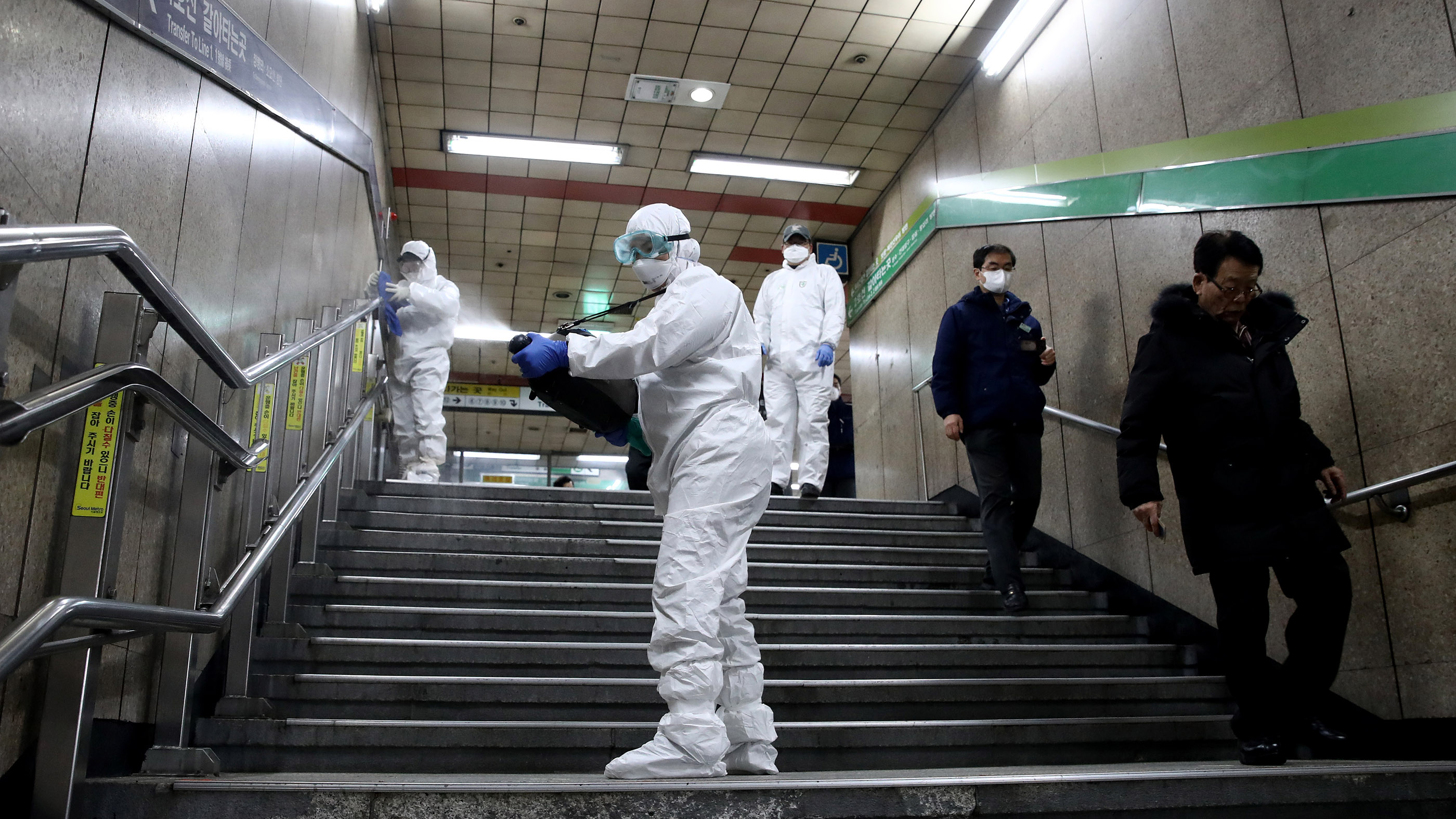
It's still too soon to call coronavirus outbreak a pandemic, WHO says
"Does this virus have pandemic potential? Absolutely, it has. Are we there yet? From our assessment, not yet."

Get the world’s most fascinating discoveries delivered straight to your inbox.
You are now subscribed
Your newsletter sign-up was successful
Want to add more newsletters?

Delivered Daily
Daily Newsletter
Sign up for the latest discoveries, groundbreaking research and fascinating breakthroughs that impact you and the wider world direct to your inbox.

Once a week
Life's Little Mysteries
Feed your curiosity with an exclusive mystery every week, solved with science and delivered direct to your inbox before it's seen anywhere else.

Once a week
How It Works
Sign up to our free science & technology newsletter for your weekly fix of fascinating articles, quick quizzes, amazing images, and more

Delivered daily
Space.com Newsletter
Breaking space news, the latest updates on rocket launches, skywatching events and more!

Once a month
Watch This Space
Sign up to our monthly entertainment newsletter to keep up with all our coverage of the latest sci-fi and space movies, tv shows, games and books.

Once a week
Night Sky This Week
Discover this week's must-see night sky events, moon phases, and stunning astrophotos. Sign up for our skywatching newsletter and explore the universe with us!
Join the club
Get full access to premium articles, exclusive features and a growing list of member rewards.
As the number of coronavirus cases reported outside of mainland China continues to climb, the World Health Organization (WHO) said it's still too soon to declare the outbreak a pandemic.
"Does this virus have pandemic potential? Absolutely, it has. Are we there yet? From our assessment, not yet," Tedros Adhanom Ghebreyesus, the director-general of WHO, said in a news briefing today (Feb. 24).
The decision of whether to call the outbreak a pandemic is based on several factors, including "the geographical spread of the virus, the severity of disease it causes and the impact it has on the whole of society," Ghebreyesus said. Right now, "we are not witnessing the uncontained global spread of this virus, and we are not witnessing large-scale severe disease or death," he said.
So far, the outbreak of this new disease, called COVID-19, has led to more than 77,000 illnesses and 2,600 deaths in China, according to the WHO. Outside of China, there have been 2,074 cases reported in 28 countries and 23 deaths.
In recent days, there has been a surge in COVID-19 cases in South Korea, Italy and Iran. Ghebreyesus called these increases "deeply concerning."
Ghebreyesus added that this is not the time to focus on what word we use to describe the global situation. "That will not prevent a single infection today, or save a single life today."
But "this is a time for all countries, communities, families and individuals to focus on preparing," he said.
Get the world’s most fascinating discoveries delivered straight to your inbox.
To prepare for the new coronavirus, countries should prioritize protecting health care workers from infection as they care for those with the virus, Ghebreyesus said.
In addition, countries should prioritize protecting people who are most at risk of severe disease, including the elderly and people with underlying health conditions. Officials should also do their utmost to contain epidemics of the virus in countries that have the capacity to contain it, to prevent the virus from spreading to countries that do not have such resources, he said.
The WHO has already declared the coronavirus outbreak a "public health emergency of international concern."
Ghebreyesus also shared new findings from WHO's team in China. The team found that the outbreak in China peaked between Jan. 23 and Feb. 2, and that it has been declining since then. Those with mild cases of COVID-19 appear to recover in about two weeks, while people with severe or critical disease recover within three to six weeks. The death rate is between 2% and 4% in Wuhan (the city where the outbreak began), and 0.7% outside of Wuhan, the team found.
- The 9 deadliest viruses on Earth
- 28 devastating infectious diseases
- 11 surprising facts about the respiratory system
Originally published on Live Science.
OFFER: Save at least 53% with our latest magazine deal!
With impressive cutaway illustrations that show how things function, and mindblowing photography of the world’s most inspiring spectacles, How It Works represents the pinnacle of engaging, factual fun for a mainstream audience keen to keep up with the latest tech and the most impressive phenomena on the planet and beyond. Written and presented in a style that makes even the most complex subjects interesting and easy to understand, How It Works is enjoyed by readers of all ages.

Rachael is a Live Science contributor, and was a former channel editor and senior writer for Live Science between 2010 and 2022. She has a master's degree in journalism from New York University's Science, Health and Environmental Reporting Program. She also holds a B.S. in molecular biology and an M.S. in biology from the University of California, San Diego. Her work has appeared in Scienceline, The Washington Post and Scientific American.
 Live Science Plus
Live Science Plus












